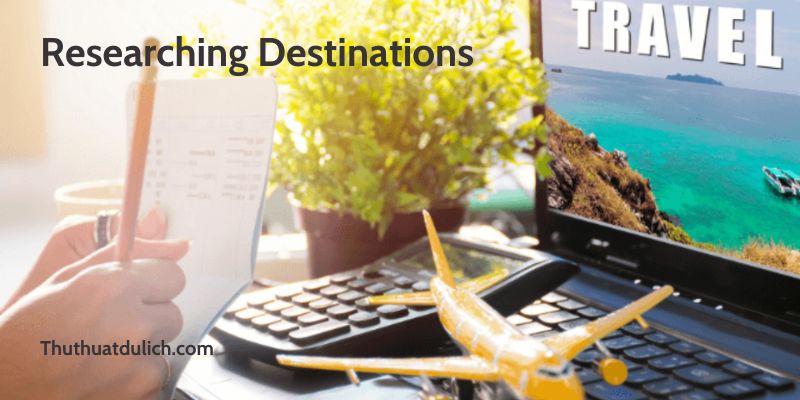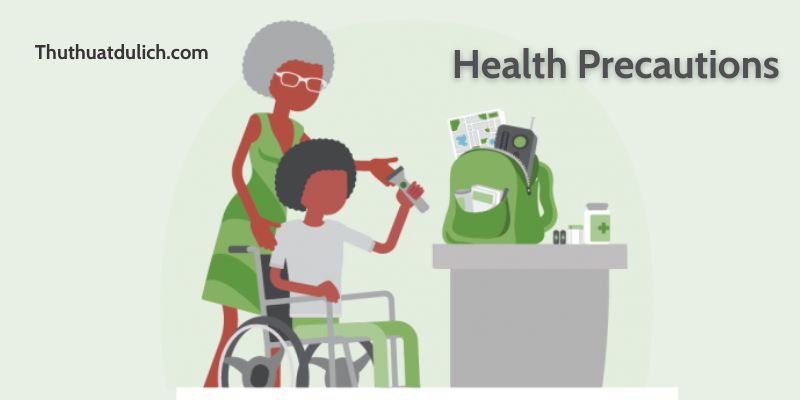Traveling is a transformative experience, allowing us to explore new horizons, cultures, and create lasting memories. However, for individuals with disabilities or special needs, embarking on a journey can come with unique challenges. In this article, Thuthuatdulich will provide valuable insights and essential tips for traveling with a disability or special needs, ensuring that your adventures are not only possible but also enjoyable.
Preparing for Your Journey
-
Assessing Your Needs and Abilities
The first step in planning any successful trip is understanding your own needs and abilities. This self-assessment is crucial in tailoring your travel experience to fit your unique requirements. Consult with healthcare professionals if necessary and take the time to reflect on your mobility, health, and any specific accommodations you might need. This knowledge will guide your journey.
-
Researching Destinations
Once you’ve assessed your needs, it’s time to select a destination that aligns with your interests and accessibility requirements. Tips for traveling with a disability or special needs include thorough destination research. Look for locations with accessible accommodations, public transportation, and attractions that cater to your needs. Consider destinations that have favorable accessibility laws and regulations in place to ensure a smoother experience.

-
Creating an Itinerary
Crafting a thoughtful itinerary is essential when traveling with a disability or special needs. Plan activities and attractions that are wheelchair accessible or provide accommodations for various disabilities. Ensure that transportation options between your chosen destinations are accessible as well. Flexibility is key, so have backup plans in case of unexpected changes.
Packing Essentials
-
Medications and Medical Supplies
One of the most crucial tips for traveling with a disability or special needs is packing essential medications and medical supplies. Ensure you have an ample supply of your medications and prescriptions, organized in a way that’s easy to access. Additionally, consider carrying necessary medical equipment and a first-aid kit for emergencies.
-
Mobility Aids
Travelers with mobility impairments should carefully choose their mobility aids. Depending on your needs, this might include a wheelchair, cane, or walker. Remember to bring any necessary spare parts or tools for repairs. If you use a mobility device, check with your transportation provider about their policies for storing and handling such equipment.
-
Documentation and Accessibility Cards
Always carry essential documents such as identification, travel insurance, and medical history. These documents can be invaluable in case of emergencies. Additionally, consider carrying accessibility cards or a brief description of your specific needs and limitations. These cards can be handed to service providers to help them better understand your requirements.
Booking Accessible Accommodations
-
Choosing Suitable Lodging
Selecting the right accommodation is a critical aspect of your travel experience. When booking hotels, vacation rentals, or resorts, search for options that offer accessible rooms and facilities. Communicate your specific needs to the accommodation provider to ensure they can meet your requirements during your stay.

-
Communicating Your Needs
Don’t hesitate to communicate your needs and expectations with the accommodation provider before your arrival. Whether it’s requesting a room on the ground floor, accessible bathroom features, or specific bedding requirements, clear communication ensures a more comfortable stay.
Transportation Considerations
-
Accessible Transportation Options
The choice of transportation can greatly impact your journey. Whether you’re traveling by air, train, bus, or cruise, book your tickets well in advance to secure the most accessible options. Airlines, in particular, offer assistance services for travelers with disabilities or special needs, so make sure to take advantage of them.
-
Airport and Transportation Assistance
One of the essential tips for traveling with a disability or special needs is requesting assistance at the airport and during transportation. Airports often provide services like wheelchair assistance, priority boarding, and accessible restrooms. Make arrangements ahead of time to ensure a seamless experience.
Navigating Destinations
-
Accessibility at Attractions
When exploring your chosen destination, look for accessible attractions and activities. Museums, parks, and cultural sites often provide accommodations such as ramps, accessible bathrooms, and guided tours designed for all abilities. Research ahead of time and plan your visits accordingly.
-
Dining Out
Enjoying local cuisine is a vital part of any travel experience. Seek out restaurants that are wheelchair accessible and consider dietary restrictions or allergies. Don’t hesitate to inform the staff about your needs, and they will often go out of their way to provide a memorable dining experience.
-
Local Resources and Support
Throughout your journey, make use of local resources and support networks. Many destinations offer accessible transportation services, such as wheelchair-accessible taxis or buses. Additionally, disability advocacy organizations can provide valuable information and assistance during your stay.
Staying Safe and Healthy
-
Health Precautions
Maintaining your health while traveling is essential. Stick to your medication schedule, stay hydrated, and manage stress effectively. Travel can be physically demanding, so it’s crucial to prioritize self-care.

-
Emergency Preparedness
Emergencies can happen anywhere, so it’s important to be prepared. Familiarize yourself with local emergency numbers and know the location of the nearest medical facilities. Communicate your specific needs to emergency responders to ensure the best possible care.
Interacting with Locals and Fellow Travelers
-
Building Positive Relationships
Interactions with locals and fellow travelers can greatly enrich your travel experience. Promote understanding and empathy by sharing your story and needs when appropriate. Encourage accessible tourism by providing feedback to businesses and attractions on their accessibility efforts.
-
Tips for Effective Communication
In situations where language barriers exist or alternative communication methods are required, be patient and clear in your communication. Carry a translation app or cards with common phrases in the local language to facilitate communication.
Conclusion
Traveling with a disability or special needs is not without its challenges, but it’s a journey filled with opportunities for growth, adventure, and connection. By following these essential tips for traveling with a disability or special needs, you can embark on adaptive adventures that expand your horizons and create cherished memories. Remember, inclusivity in travel is an ongoing endeavor, and each trip contributes to a more accessible world for all. So, pack your bags and get ready to explore – the world is waiting.




![[Có thể bạn chưa biết] Ba giá trị tạo ra một nước Mỹ khác biệt và đáng sống](https://thuthuatdulich.com/wp-content/uploads/2019/03/3-dieu-lam-nen-gia-tri-nuoc-My-05-324x235.jpg)







